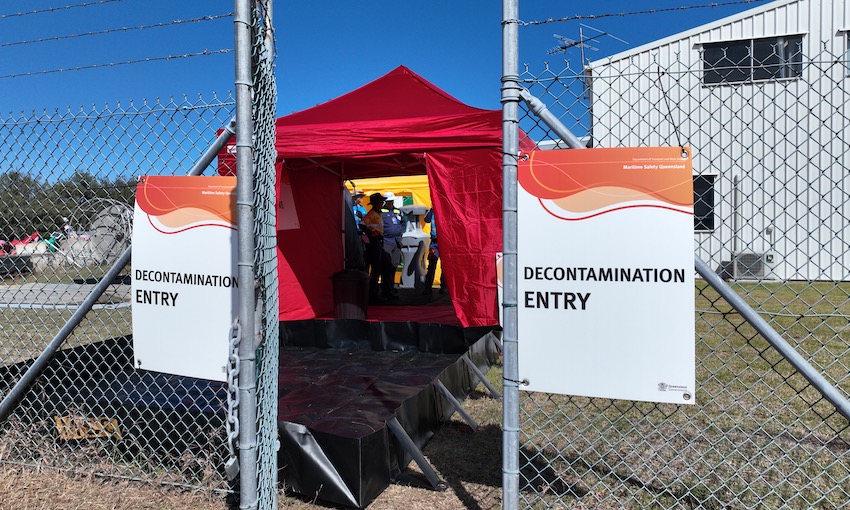A THREE-DAY pollution response exercise in Gladstone this week has prepared the local maritime community for potential oil spill situations.
Exercise Cabin is a real-time exercise giving multiple agencies the opportunity to rehearse the deployment of pollution response arrangements to prepare for oil spill incidents. It ran this week from 21 to 23 June.
Participating agencies included the Department of Environment and Science, Great Barrier Reef Marine Park Authority, Australian Maritime Safety Authority, Gladstone Ports Corporation, Gladstone Regional Council and traditional owners.
Maritime Safety Queensland general manager Kell Dillon said drones played an important role in the exercise by monitoring on-water and shoreline activities.
“Drone footage was then livestreamed into the incident control centre,” Mr Dillon said. “This is a quantum leap for oil spill management with incident controllers given a new perspective in real time, particularly relevant to more remote locations.
“This helps provide accurate, fast information to help with decision making. The drones give a bird’s eye view of the scene and allows for more effective deployment of oil spill resources such as vessels, booms and other equipment.”
MSQ’s Gladstone regional harbour master John Fallon, who was the Exercise Cabin incident controller, said the operation also allowed MSQ to test a new incident management system known as Guardian.
“Staff have been testing the system and learnings from the exercise will be used in any future incidents and exercises,” Mr Fallon said.
“It is important for MSQ to take advantage of new technology. We need to be ready if and when an incident occurs.”
Mr Dillon said exercises of this nature are vital to ensuring rapid response activities in the potential event of marine based oil spills.
“All key players worked extremely well together as a multi-agency response,” he said.
“Gladstone is a busy port, vital to Queensland’s economy. We have been blessed with great weather and the exercise incident control centre was established quickly and performed extremely well.”
CQ University’s Coastal Marine Ecosystems Research Centre facility was used during the exercise as a wildlife treatment site.

